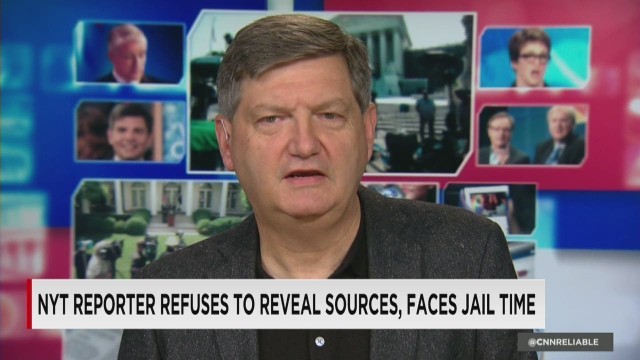
No single review or interview can do justice to Pay Any Price, the new book by James Risen that is the antithesis of what routinely passes for journalism about the “war on terror.” Instead of evasive tunnel vision, the book offers big-picture acuity, focusing on realities that are pervasive and vastly destructive.
Published this week, Pay Any Price throws down an urgent gauntlet. We should pick it up. After 13 years of militarized zealotry and fear-mongering in the name of fighting terrorism, the book — subtitled Greed, Power, and Endless War — zeros in on immense horrors being perpetrated in the name of national security.
As an investigative reporter for The New York Times, Risen has been battling dominant power structures for a long time. His new book is an instant landmark in the best of post-9/11 journalism. It’s also a wise response to repressive moves against him by the Bush and Obama administrations.
For more than six years — under threat of jail — Risen has refused to comply with subpoenas demanding that he identify sources for his reporting on a stupid and dangerous CIA operation.
A brief afterword in his new book summarizes Risen’s struggles with the Bush and Obama Justice Departments. He also provides a blunt account of his long-running conflicts with the Times hierarchy, which delayed some of his reporting for years — or spiked it outright — under intense White House pressure.
Self-censorship and internalization of official worldviews continue to plague the Washington press corps. In sharp contrast, Risen’s stubborn independence enables Pay Any Price to combine rigorous reporting with rare candor.
Here are a few quotes from the book:
• “Obama performed a neat political trick: He took the national security state that had grown to such enormous size under Bush and made it his own. In the process, Obama normalized the post-9/11 measures that Bush had implemented on a haphazard, emergency basis. Obama’s great achievement — or great sin — was to make the national security state permanent.”
• “In fact, as trillions of dollars have poured into the nation’s new homeland security-industrial complex, the corporate leaders at its vanguard can rightly be considered the true winners of the war on terror.”
• “There is an entire class of wealthy company owners, corporate executives, and investors who have gotten rich by enabling the American government to turn to the dark side. But they have done so quietly… The new quiet oligarchs just keep making money… They are the beneficiaries of one of the largest transfers of wealth from public to private hands in American history.”
• “The United States is now relearning an ancient lesson, dating back to the Roman Empire. Brutalizing an enemy only serves to brutalize the army ordered to do it. Torture corrodes the mind of the torturer.”
• “Of all the abuses America has suffered at the hands of the government in its endless war on terror, possibly the worst has been the war on truth. On the one hand, the executive branch has vastly expanded what it wants to know: something of a vast gathering of previously private truths. On the other hand, it has ruined lives to stop the public from gaining any insight into its dark arts, waging a war on truth. It all began at the NSA.”
Fittingly, the book closes with a powerful chapter about the government’s extreme actions against whistleblowers. After all, whistleblowing and independent journalism are dire threats to the secrecy and deception that fuel the “war on terror.”
Now, Risen is in the national spotlight at a time when the U.S. government is launching yet another spiral of carnage for perpetual war. As a profound book, Pay Any Price has arrived with enormous potential to serve as a catalyst for deeper understanding and stronger opposition to abhorrent government policies.
